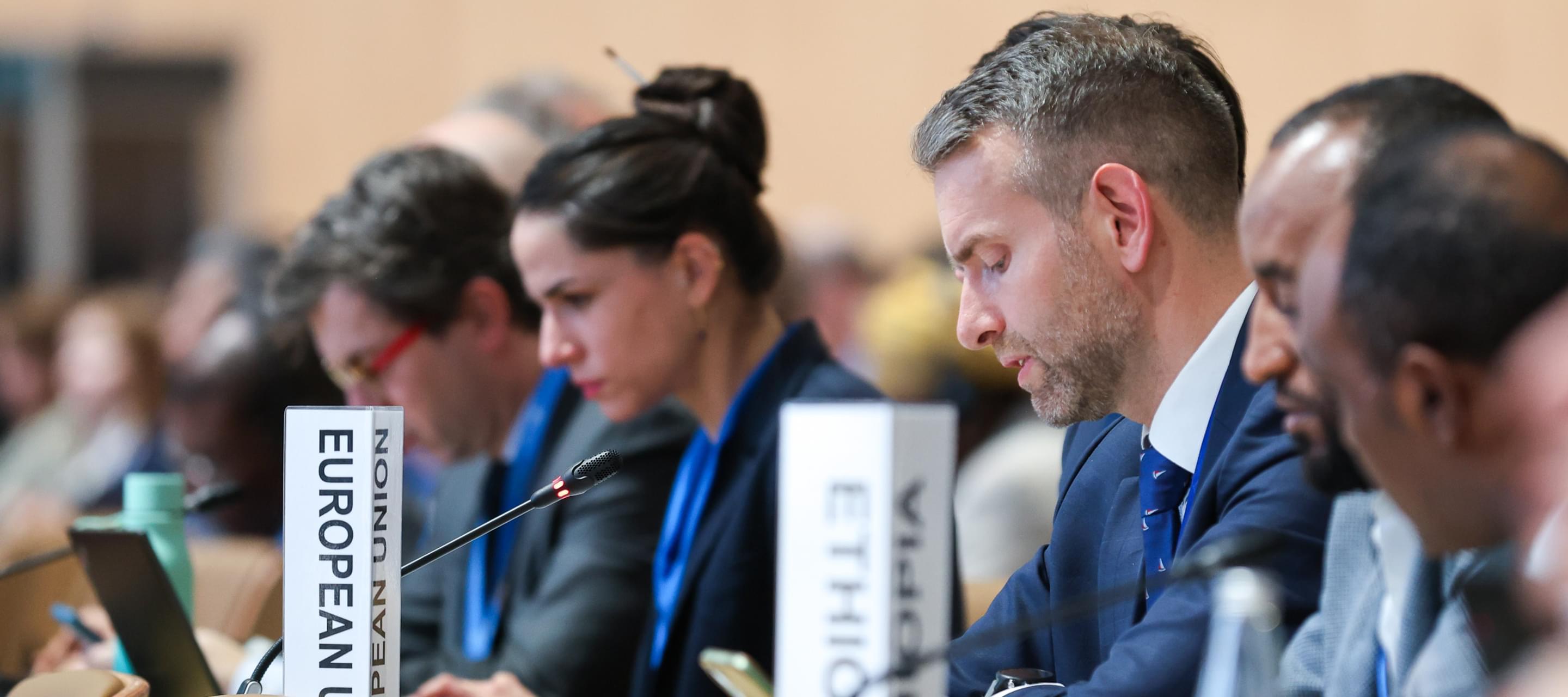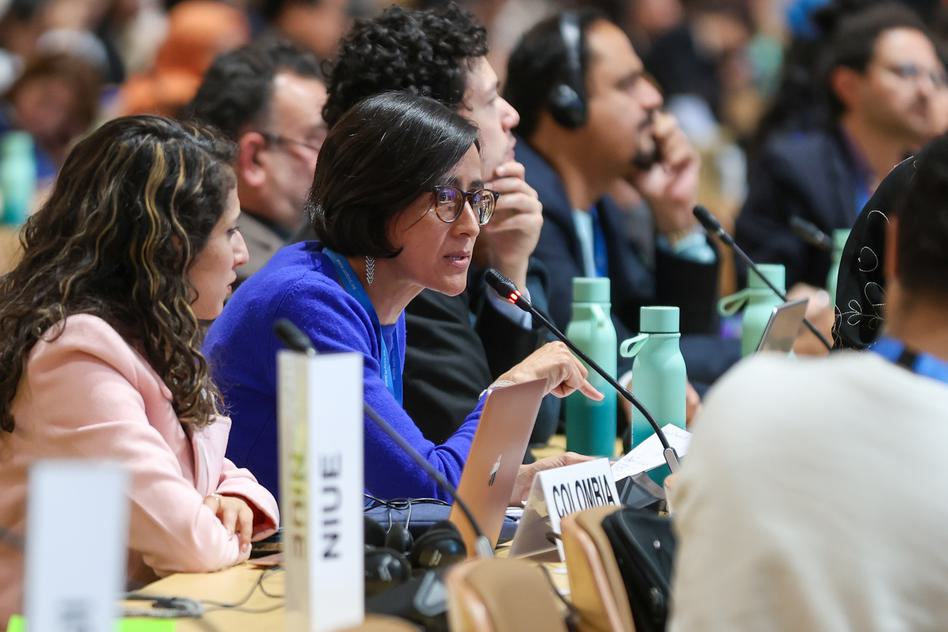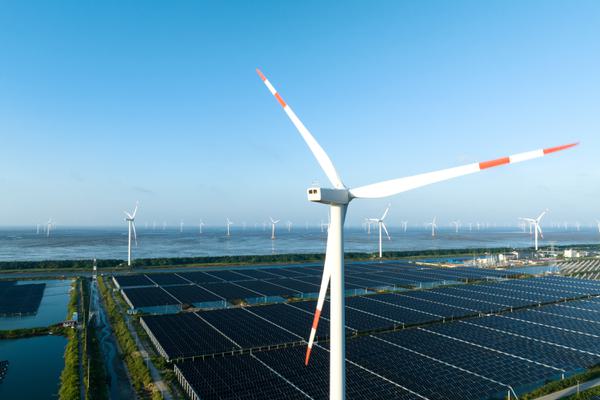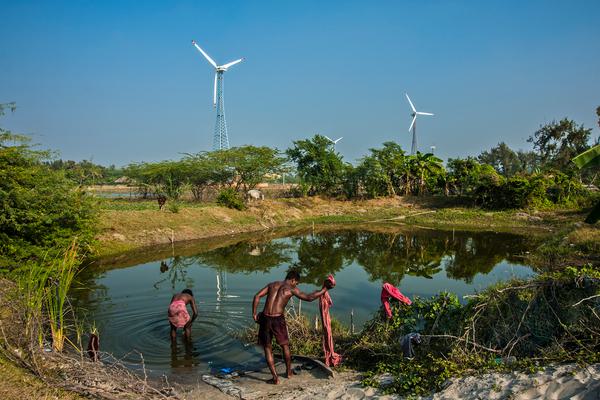The politics of just transitions - reflections from the COP29 Just Transitions Ministerial Roundtable
20 November 2024

The COP29 Just Transition Ministerial Roundtable is a reminder, if one were needed, that just transitions are - at their heart - a 'small p' political concept. This was the case when the concept first emerged in 1980s trade unionism in the US energy sector, and it remains the case today.
There was a long queue of environment ministers making statements at the high-level session in Baku yesterday framing the concept according to preference. To call it a 'roundtable' is a serious misnomer, it was a three-hour stream of three minute (often longer) speeches from the floor. We were reminded constantly to 'leave no one behind' in the transitions ahead. One gross generalisation would be to say that governments in the “Global North” (industrialised rich nations) are keen to focus on the specific and technical elements of the UNFCCC’s Just Transition Work Programme, whilst the “Global South” (emerging and developing economies) is more energised by systemic and structural issues such as the inequalities in global trade and finance.
But this caricature misses the really interesting part - where the politics are starting to mesh.
Some at COP, or boycotting Baku altogether, see the just transitions agenda as part of some kind of doom loop. For some it is delay-ism in the face of the ticking clock of urgent climate action. For others, it is a fig leaf hiding deeper injustices. For the more technical, those who wish for metrics and KPI’s, the jaw jaw of ministers is the source of much frustration. Others feel just transition is experiencing mission creep and needs to be pegged back to the jobs and worker protections of the concept’s roots and its framing in the preamble of the 2015 Paris Agreement.
Still others, and we know who we are talking about, deny climate change exists or represents any form of crisis. In my recently published book that attempts a systems-thinking approach to the just transition, I tag all of these as inevitable aspects of “bounded rationality”. The social messiness of climate action has only been given serious attention over recent years.
From my perspective, the political manoeuvres are more testament to the agenda’s coming of age. It will get messier still, perhaps a lot messier, before it gets better.
Ministers get the need for the concept even if they are hushed at home
It is broadly true that it is politicians on the political left (big 'P') that are more vocal around the concept at UN events (albeit a good number of centre-right governments also spoke lucidly of its importance).
María Susana Muhamad González, the Colombian Environment Minister, is quickly becoming something of a just transitions political rockstar and her speech was met by the loudest round of applause in the room (the Palestinian Authority received the longest). Ed Miliband represented the new UK Government and he embraced the words of the Colombian Minister, as well as the language of the just transition, in a way he has yet to do domestically within the UK. This seems to be common theme for the centre-left governments (e.g. Australia, the exiting US administration), they recognise how the partly political nature of the concept can easily be weaponised by domestic opposition.

Susana Muhamad, Minister of Environment and Sustainable Development, Colombia. Photo by IISD/ENB | Mike Muzurakis
Some of the most interesting geopolitical speeches came from India, Egypt, UAE, China and Kenya. Whilst a huge variety of nuances were placed on the concept, it was stretched here, there, and everywhere.
But the fact that so many government ministers now feel the need to engage illustrates how politically dynamic the 'just transition' has become. It is an inevitable discussion for the years ahead as social opposition to climate action is seen as one of the greatest challenges for reaching internationally agreed climate goals - partly because 'social messiness' has been neglected for so long.
Governments need to remember who they are talking about
It is entirely appropriate that issues of international equity are raised during the ministerial process. For example, the fact that most African nations are charged up to seven times the interest rates of European countries when it comes to green investments will stymy progress until it is fixed, as the South African minister reminded us.
The Kenyan minister also raised the African continent's concerns in how carbon is being integrated into trade, whether it be carbon tariffs as we see in Carbon Border Adjustment Mechanism (CBAM) in Europe, or the social subsidies that underpin the Inflation Reduction Act (IRA) in the US. But when it comes to the work programme itself, some ministers were better than others in reminding us who we are talking about - workers, communities and other affected stakeholders. Here the words of Jordan, Palestine, Ethiopia and the Small Island Developing States (SIDS) - in this case Fiji, Niue, Tuvalu, Solomon Islands, Grenada, Cuba - were most resonant. Kudos to the ministers from Norway and Moldova who both called out human rights specifically.
It is more than mitigation
Whilst the just transition concept is widely seen as emerging from the 'mitigation' branch of the climate framework convention (or Working Group III in IPCC terms), almost every speech stressed the importance of thinking also about adaptation, resilience and loss & damage. UNFCCC had set the frame for this: asking ministers to comment not just on how just transition should be integrated into Nationally Determined Contributions (NDCs) but also National Adaptation Plans (NAPs). This at least is progress. When the livelihoods of coastal communities, agricultural workers, forest and indigenous peoples are considered, anything other than taking an environment-wide approach is non-sensical.
Whilst COP28 last year made some steps in this direction, we will probably have to wait until COP30 in Brazil before we see the beginnings of a more systemic approach.
There is no 'one size fits all' approach but...
If I had a ten Manat note (the currency of Azerbaijan) for each time a minister said that there was 'no one size fits all approach', I would be exporting boxes of caviar from the Caspian Sea tomorrow. Whilst it is a truism that matters - transitions must be place-based and time-bound to ever be 'just' in the eyes of stakeholders - it is a truism nonetheless.
What none of the state parties mentioned was the need for 'quality control' in how the concept evolves. UNFCCC was silent on this point also, so too the Subsidiary Body for Implementation (SBI) and the Subsidiary Body for Scientific and Technological Advice (SBSTA) and it would have been helpful if their leaders had stuck around to listen to the discussions.
My own organisation (IHRB) has been bold enough to start some thinking on this over the past three years. Quality control and guard rails are now overdue and we hope the UNFCCC will see the need for this even if the application of the concept into specific transitions will be diverse and varied.
What will be in the Work Programme?
Where the negotiations of the next few days will land on the UNFCCC Just Transition Work Programme, time will tell. The negotiated paper was withdrawn yesterday on procedural and not substantive grounds we were told by the government representative sitting next to us. The co-chairs of the Just Transition Working Group have a smorgasbord of suggestions in their 'non-paper' and it is likely that those chosen will need to span the more technical to those that lean to the more systemic.
Talking to the negotiators gives you an insight into a world of 18-hour workdays and endless arguing over specific wording and contingencies. These poor souls must be those who enjoy COP the least, inhabiting the inner sanctums of the sprawling labyrinth away from sunlight and sustenance (albeit less sprawling than last year).
However the negotiations unfold, keeping the financial and trade-related negotiations siloed from the just transitions agenda - through their separate workstreams on the New Collective Quantified Goal on Climate Finance (NCQG) and their “market” and “non-market” mechanisms for example - makes less and less sense. The interconnected nature of decarbonisation requires a systemic approach, joining the dots between all sectors and putting just transitions at their core - else we will fail to seize the transformative potential that the just transition offers.
What does this mean for the rest of us who are not Government Ministers?
Some NGOs and business associations follow the process much more closely than I do, and so apologies to them for any clumsiness in my thoughts outlined here. But many others have no idea about how these processes work and the political constraints on each government.
Business and consultancies might be frustrated to learn how political the just transition concept is, particularly those wishing to tick a just transition box and or due diligence list. Those workers and communities in search of greater justice are certainly the most frustrated of all.
But don't give up, it is just getting started.
Image credit: Photo by IISD/ENB | Mike Muzurakis




